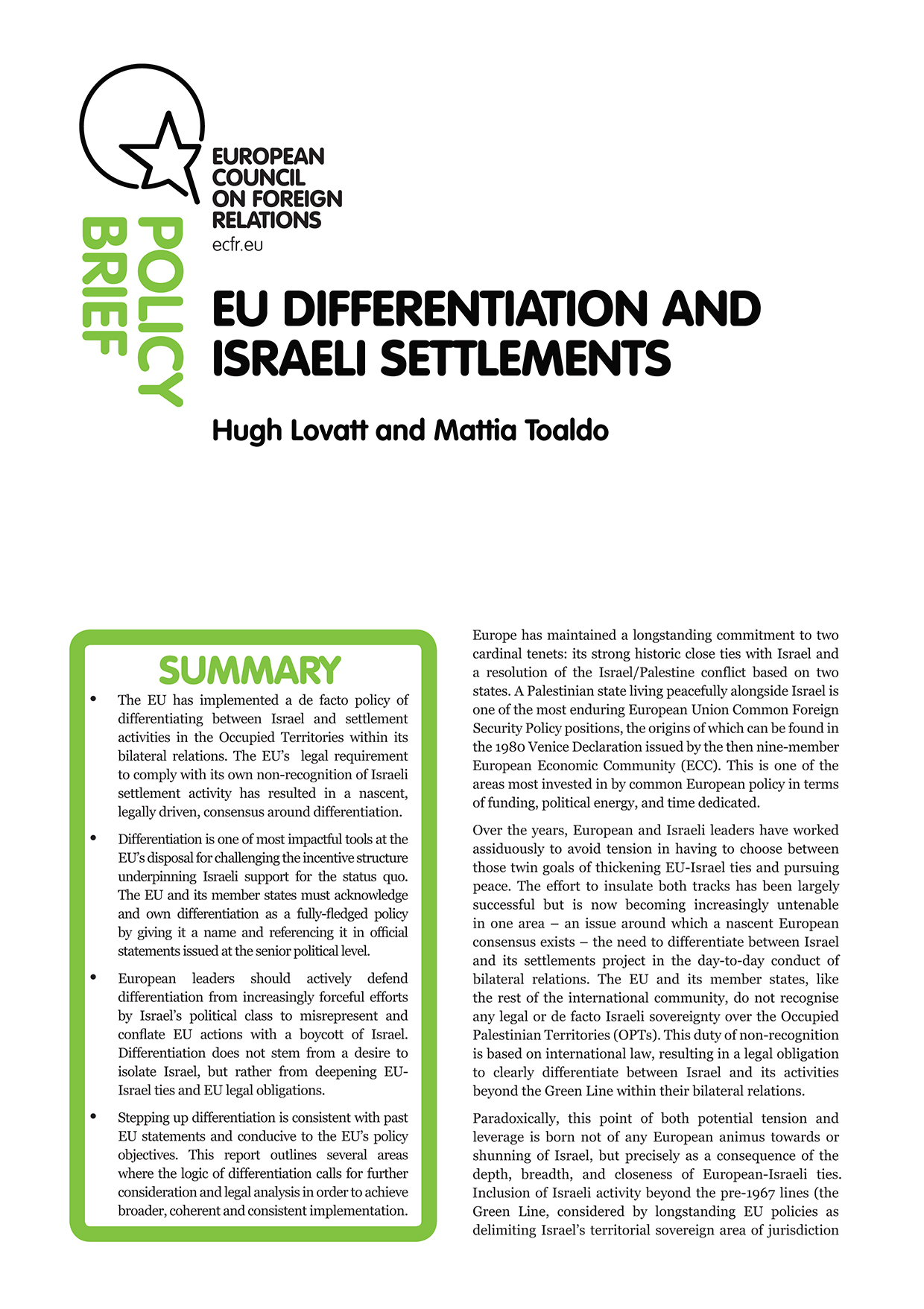EU Differentiation and Israeli settlements
The EU needs to act faster and further in ensuring that Israeli settlements in no way benefit from EU-Israel bilateral relations
The EU needs to act faster and further in ensuring that Israeli settlements in no way benefit from EU-Israel bilateral relations according to a new report by ECFR.
“EU Differentiation and Israeli settlements” argues that the EU’s legal requirement to comply with its own non-recognition of Israeli settlement activity has resulted in a nascent, legally driven, consensus around differentiation.
Interview with the authors
To load the audio player provided by Soundcloud, click the button below. This means Soundcloud will receive technical data about your device or browser, as well as information about your visit on this page. Soundcloud may use cookies and may transfer your data to servers outside the EU, where the level of data protection may not be equivalent to that in the EU. For more information visit our privacy policy.
The paper argues that differentiating between Israel and settlement activities within the EU’s bilateral relations is one of most powerful tools at the EU’s disposal for challenging the incentive structure that underpins Israeli support for the status quo. But the European Union must do more to own – and deepen – its use of the language of differentiation to explain its legal responsibilities to distinguish between activities in the Occupied Territories and Israel but also to push back against Israeli attempts to conflate differentiation with the Boycott, Divestment, and Sanctions (BDS) movement.
Following Monday’s Foreign Affairs Council conclusions, the report also argues that a policy of differentiation must be more coherently implemented across the EU and calls for the Commission to task its directorates general with reviewing their existing interactions with Israel to assess whether differentiate between Israel proper and the settlements. It also calls for a more coherent use of business advisories across Europe of the potential legal and financial consequences of doing business with Israeli entities in the Occupied Territories.
The authors raise the possibility of extending a differentiation policy to new areas, currently largely untouched by the EU’s de facto differentiation efforts, including: the integration of the European and Israeli financial sectors, the charitable status within the EU of organisations that support Israel’s settlement enterprise and the validity within the EU of legal documents issued by Israeli authorities in the Occupied Territories.
Mattia Toaldo, Policy Fellow and co-author of ‘EU Differentiation and Israeli settlements’, said:
“For years now, Europeans have been, de facto, pursuing a process of differentiation but have been reluctant to acknowledge it. It is now time to own and defend this policy. Until Israel either makes the same differentiation or ends its settlement and occupation policy, the EU has a legal requirement to do so itself.
“And there is a strong political imperative, as well as a legal one. Differentiation can help modify the calculations that underpin the status quo on the Israeli side and ultimately create the conditions for a meaningful peace process.
“At the Foreign Affairs Council this week, EU foreign ministers reaffirmed that they will “take further action in order to protect the viability of the two state solution””. In differentiation they have a ready-made policy, of proven effectiveness, with a solid legal basis.
“It is time to use it.”
The European Council on Foreign Relations does not take collective positions. ECFR publications only represent the views of their individual authors.



